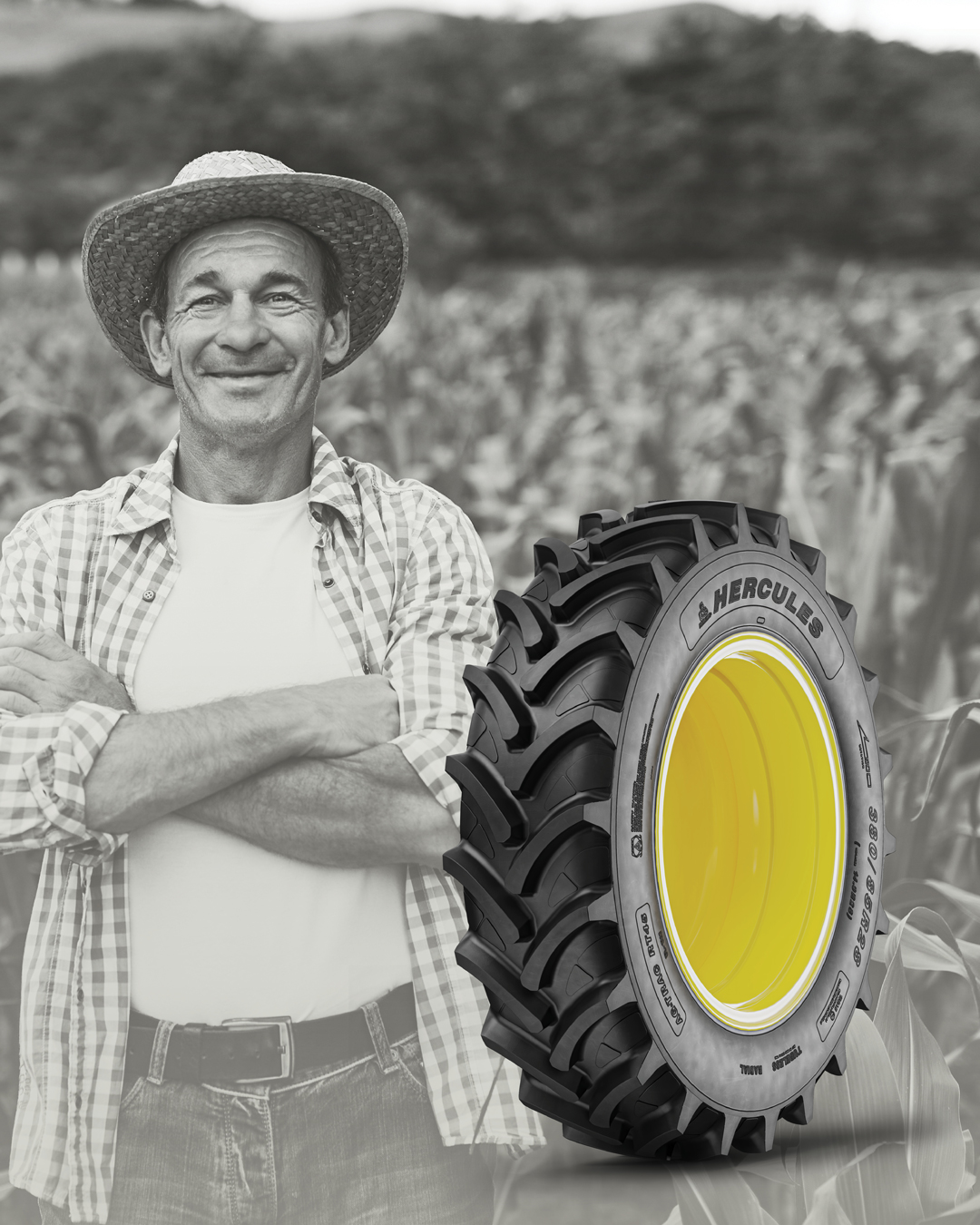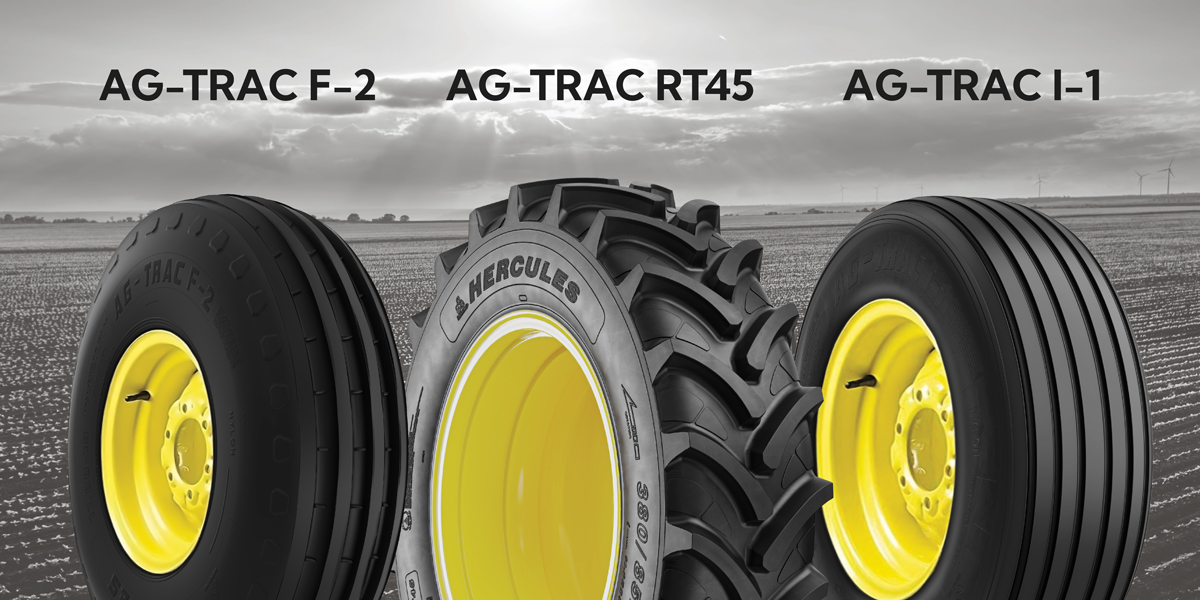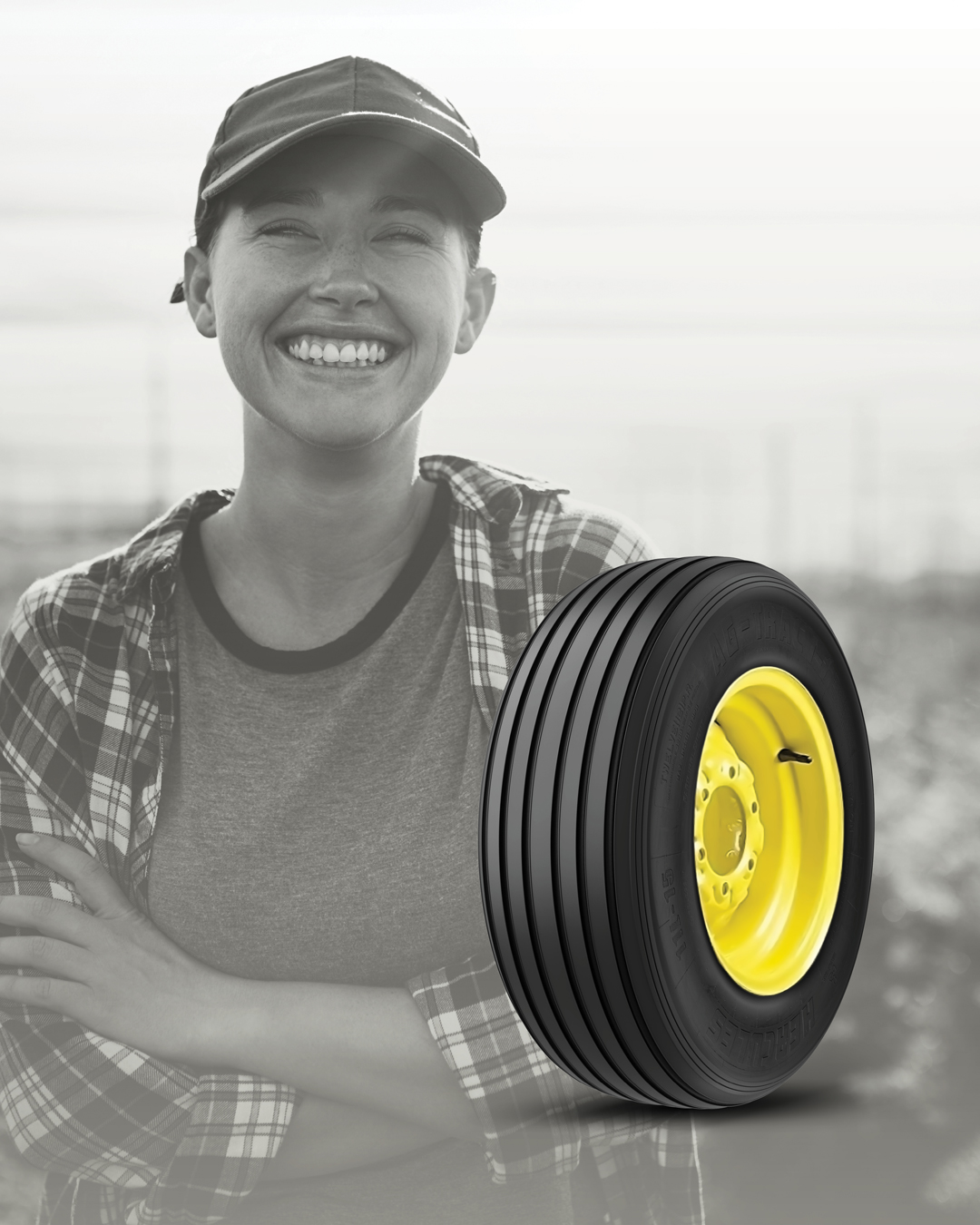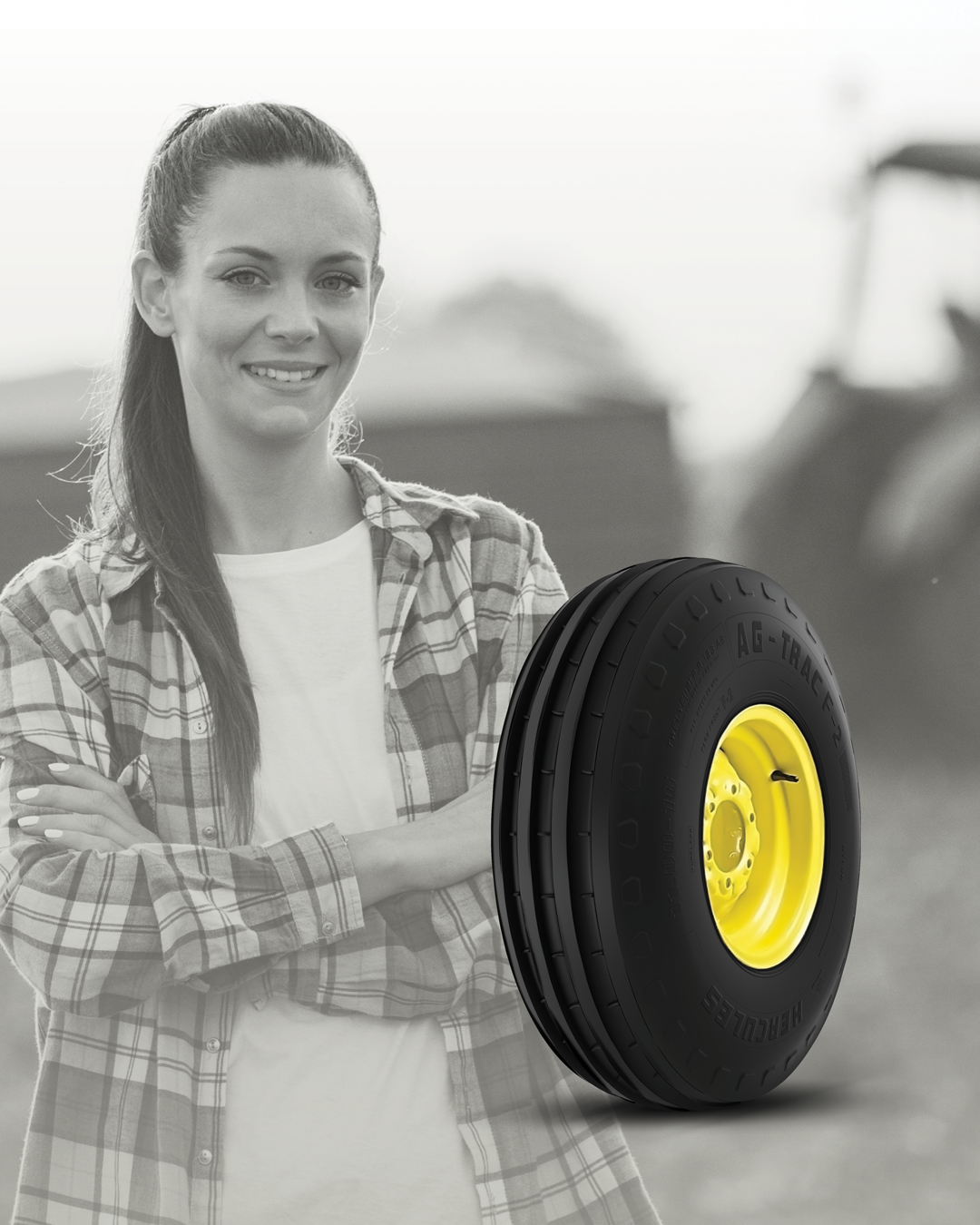No matter the farming season, our commercial team at Hercules Tires works year-round to ensure our agricultural tires are up to the task of maximizing traction for farming specialists.
The right tires are essential for navigating fields with precision and efficiency, regardless of the task or time of year. Read on to discover how bias and radial tires in the Hercules Tires AG-TRAC line can enhance your farming operations and help you maximize productivity.
Understanding Radial Tires
Radial tires are designed with cords that run perpendicular to the direction of travel and parallel to each other. This construction allows the tire's sidewall and tread to function independently, providing several distinct advantages:
- Improved Traction: Radial tires have a larger footprint, which increases the contact area with the ground. This enhanced traction is crucial for operations on soft or uneven terrains, helping to reduce slippage and improve overall efficiency.
- Longer Lifespan: The design of radial tires distributes pressure more evenly across the tire, reducing wear and tear. This longevity means less frequent replacements, saving both time and money.
- Fuel Efficiency: With lower rolling resistance, radial tires require less energy to move. This efficiency translates to reduced fuel consumption, which is a significant benefit given the rising costs of fuel.
- Comfort and Stability: Radial tires offer a smoother ride due to their flexible sidewalls, which absorb shocks and vibrations better than bias tires. This stability is especially important when transporting goods or operating machinery over long distances.
The Hercules AG-TRAC RT45 is a great option for farmers looking for radial agricultural tires. It is offered in 10 different fitments with key benefits such as:
- Mud diffusers help to break mud and debris free from the tire, providing optimal pulling power.
- Multi-angle lugs help improve handling and minimize vibration, offering a smoother ride between fields.
- An optimized footprint that bolsters the strong, flexible casing that helps lower soil compaction.
- A 20% deeper tread than the typical R1 design, providing low slip, improved traction and long tire life.

The Hercules AG-TRAC RT45 is a radial agricultural tire that provides farmers with optimal pulling power, smoother rides between fields and improved traction for a long tire life.
Understanding Bias Tires
Bias tires are constructed with layers of rubber-coated fabric cords placed at alternating angles, usually at 30 to 45 degrees, to the direction of travel. This design has its own set of benefits:
- Durability and Strength: The crisscross construction of bias tires makes them highly durable and resistant to punctures and cuts. This toughness is ideal for rugged farming environments where debris and rough terrain are common.
- Cost-Effectiveness: Generally, bias tires are less expensive than radial tires due to how they are constructed. Compared to radial tires, bias tires use less expensive material and typically take less time to make. For budget-conscious farmers, this cost savings can be significant, especially when equipping multiple pieces of machinery.
- Flexibility: Bias tires are known for their ability to handle heavy loads due to their robust sidewalls. This flexibility is beneficial when carrying heavy equipment or transporting large quantities of produce.
- Versatility: These tires perform well in a variety of conditions, making them a versatile choice for farms that experience different types of terrain and tasks.

At Hercules Tires, we are proud to offer two options for farmers looking for bias agricultural tires in its AG-TRAC line.
The AG-TRAC I-1 comes in four different sizes and is constructed with a strong nylon cord body that resists impacts and damage to the sidewall. It has a specially formulated tread compound to extend service life and provide protection against the elements. Its wide tread design offers enhanced flotation and stability in the free-rolling position while minimizing soil compaction.

The Hercules AG-TRAC I-1 is a bias agricultural tire that offers protection against environmental elements, enhanced flotation and stability and minimizes soil. compaction.
Another great option for a bias agricultural tire is the AG-TRAC F-2. Like the AG-TRAC I-1, it has a powerful nylon cord casing designed to resist scuffs and damage in service. Additionally, its 4-rib design offers enhanced flotation and self-cleaning that leads to great steering response from the fields to hard surfaces. With a robust 10 & 12 ply, it allows for higher load carrying capacity, while the durable 4-rib design helps with even load distribution.

The Hercules AG-TRAC F-2 is designed to resist scuffs and damage with enhanced floatation and self-cleaning for a great steering response on different surfaces.
Choosing the Right Tire for Your Operations
The choice between radial and bias tires depends on several factors, including the specific tasks at hand, the type of terrain, and budget considerations. Here are some scenarios to help guide your decision:
- For Soft or Uneven Terrain: Radial tires are generally the better choice due to their superior traction and stability. They are ideal for tasks like plowing, planting, and cultivating, where maintaining grip and reducing soil compaction are critical.
- For Heavy Loads and Rugged Conditions: Bias tires excel in durability and load-carrying capacity. If your operations involve hauling heavy equipment or navigating through rocky, debris-filled areas, bias tires can offer the strength and resilience needed.
- For Cost Efficiency: If budget constraints are a primary concern, bias tires provide a cost-effective solution without compromising on performance because of the process it takes to make a bias tire compared to a radial tire. However, consider the long-term savings that radial tires might offer through improved fuel efficiency and longevity.
At Hercules, we understand the strength you put into your work we want to make sure you can rely on ours. Each Hercules agricultural tire is backed by our Performance Promise to ensure you can perform farming operations without worrying about your tires.
The Performance Promise for agricultural tires includes a Limited Protection Policy against defects in workmanship or material for 60 months from the date of purchase. Additionally, if the tire becomes unserviceable due to a flaw in workmanship or materials, we will replace it at no charge during the first 10% of tread life or twelve months.
We understand that farming and agriculture specialists rely on a myriad of tools and technologies to navigate challenges and opportunities that lie ahead. Fortunately, the right agriculture tires can help to facilitate tasks for modern farming operations. With the right agricultural tires, farmers can maximize productivity, efficiency, and sustainability in all four farming seasons.
If you’re seeking the right set of agriculture tires for your tractor, our team at Hercules Tires is here to help you select the right tires to navigate your farming operations with confidence and ease. Find a Hercules Commercial Tire Dealer near you to learn more.

Ask a Hercules Tires Dealer: How to Choose the Right Agricultural Tires for Your Farm
Key factors to consider when selecting agricultural tires that are up to the task